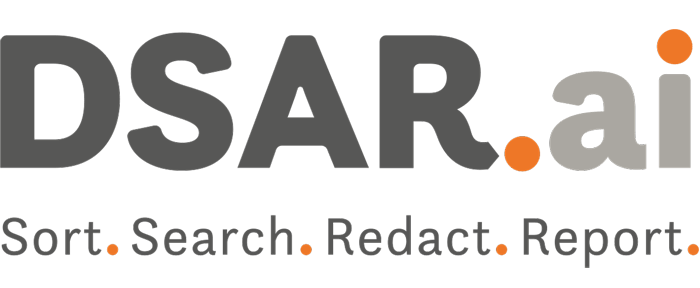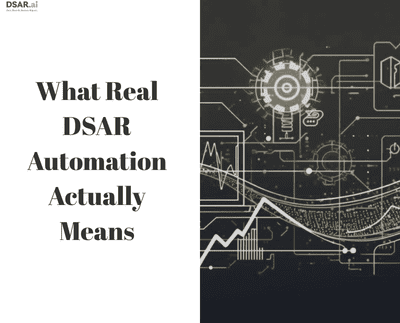
What Real DSAR Automation Actually Means
/
0 Comments
Most DSAR automation tools focus almost entirely on redaction.
In reality, redaction is only one small component of a legally defensible Data Subject Access Request (DSAR) workflow.
True DSAR automation must cover every stage of the process — from intake and identity verification to data discovery, deduplication, secure delivery, and audit logging.
Anything less creates false confidence and leaves organisations unknowingly non-compliant with GDPR and CCPA requirements.
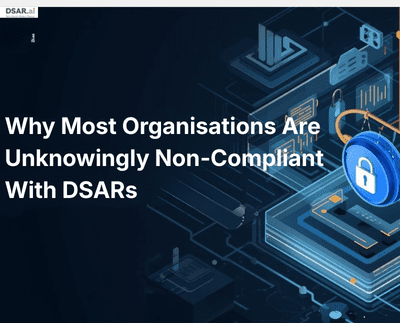
Why Most Organisations Are Unknowingly Non-Compliant With DSARs
ost organisations believe they are handling Data Subject Access Requests (DSARs) correctly. They acknowledge requests, gather data, redact documents, and issue responses within roughly the required timelines.
In practice, many DSAR workflows fail fundamental GDPR requirements. These failures are rarely caused by negligence or bad intent. They are structural.
The operational model for DSAR compliance was designed for a world of paper records and contained email systems. Today’s data environments are radically different. Personal data now lives across email inboxes, cloud storage, CRMs, SaaS platforms, collaboration tools, HR systems, backups, and shadow IT.
As a result, many organisations are now unknowingly non-compliant with GDPR DSAR obligations — even when acting in good faith.

The Rising Threat of Fraudulent DSARs in 2025, and How Organisations Can Protect Themselves
Fraudulent DSARs are becoming a real threat in 2025, with rising impersonation attempts, automated request bursts and a sharp increase in ICO complaints. As DUAA places stronger expectations on identity verification and defensible search processes, organisations now need clear safeguards to prevent data from being released to the wrong person. This article explains the warning signs of fraudulent DSARs, the legal risks, and the practical steps every organisation can take to protect both compliance and genuine data subjects.

How To Build a DSAR Search Strategy That Actually Works
DSAR searches fail not because teams lack effort, but because they lack structure. With DUAA and evolving ICO expectations raising the bar, organisations must show how and why each search decision was made. This blog breaks down how to create system maps, templates and a simple three-tier model that turns DSAR search into a consistent, documented and defensible process.
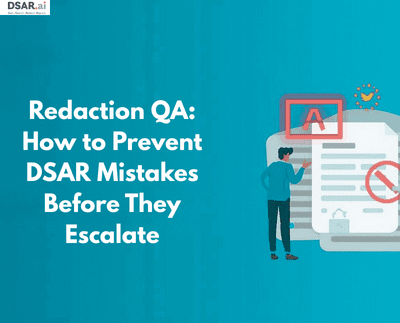
Redaction QA: How to Prevent DSAR Mistakes Before They Escalate
Redaction errors are now a leading cause of DSAR complaints. This guide shows how organisations can avoid common mistakes, build strong QA processes and ensure redactions are accurate, consistent and defensible under UK GDPR and DUAA.
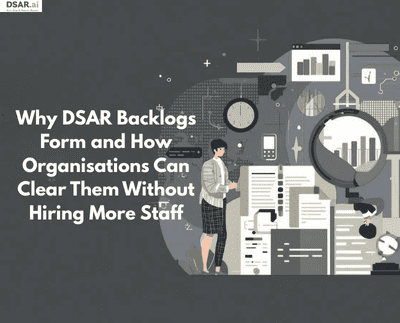
Why DSAR Backlogs Form and How Organisations Can Clear Them Without Hiring More Staff
Many organisations are overwhelmed by DSAR volumes, yet the real problem isn’t resources. It’s the way searches, scoping and redaction are handled. With the right workflow, teams can reduce risk, meet deadlines and clear DSAR backlogs without hiring more staff.
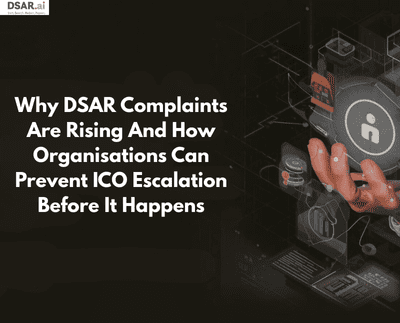
Why DSAR Complaints Are Rising And How Organisations Can Prevent ICO Escalation Before It Happens
DSAR complaints are rising sharply across universities, NHS bodies, councils, and corporates as DUAA and updated ICO expectations raise the bar for timeliness, search diligence, redaction accuracy, and documentation. This blog breaks down why complaints escalate, where sector-specific risks lie, and the practical steps organisations can take to prevent issues from reaching the ICO — and how DSAR.ai helps teams modernise DSAR handling with defensible, proportionate workflows.
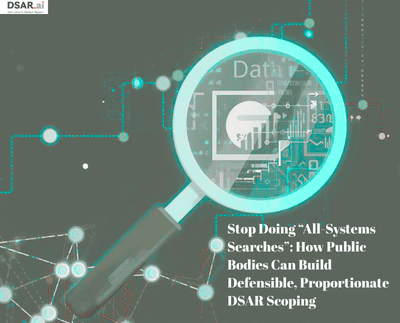
Stop Doing “All-Systems Searches”: How Public Bodies Can Build Defensible, Proportionate DSAR Scoping
Proportionate searches are not about doing less — they are about doing the right searches, for the right reasons, and recording your rationale.

How Education, Healthcare, and Local Government Bodies Can Build Scalable DSAR Workflows Without Burning Out Their Teams
Public-sector DSAR volumes are rising fast while staffing and resources stay flat. This guide explains how education providers, NHS bodies and local authorities can build scalable DSAR workflows that reduce burnout, meet DUAA and UK GDPR standards, and create defensible, sustainable processes.
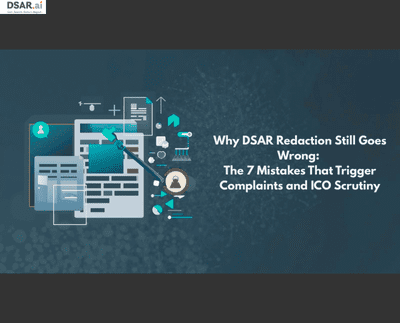
Why DSAR Redaction Still Goes Wrong: The 7 Mistakes That Trigger Complaints and ICO Scrutiny
Regulators now expect DSAR files to tell a complete story—where you searched, what you found, what you withheld, and why. This blog outlines how to create a DSAR file that is transparent, proportionate and defensible from the ground up.
 020 8004 8625
020 8004 8625